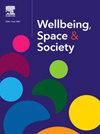2010 年代欧洲的福祉和可持续性--实证分析
IF 2.4
Q2 GEOGRAPHY
引用次数: 0
摘要
2010 年代是欧洲经济相对稳定的十年。大多数国家已经从上一个十年的金融危机中恢复过来,而 2020 年代初带来的新的社会经济危机还没有出现。这一时期的经济稳定并不意味着完全没有系统性问题。环境恶化、社会老龄化、难民危机、海外丑闻等等,不一而足。然而,由于这一时期相对稳定,与危机时期相比,2010 年代可以更好地说明和比较这些问题对不同国家的直接影响。为了从经验上证明这一假设,我对 39 个欧洲国家进行了纵向统计数据分析和横截面回归分析。研究的结果变量是作为非正式进步指标的快乐星球指数(HPI),以及作为(主观)幸福感和(客观)可持续性替代指标的其子成分。结果证实,尽管在此期间正规经济增长大致持平,但在幸福感和可持续性方面却出现了不同的趋势。这突出表明,有必要采取多方面的方法来评估进展情况。本文章由计算机程序翻译,如有差异,请以英文原文为准。
Wellbeing and sustainability in Europe in the 2010s–An empirical analysis
The decade of the 2010s was characterized by relative economic stability in Europe. Most of the countries had recovered from the financial crisis of the previous decade while the new socio-economic crises, brought by the early 2020s, were not yet on the horizon. The economic stability of this period does not mean the absence of systemic issues at all. Environmental degradation, aging societies, refugee crisis, or offshore scandals are but just to mention a few. However, due to the period of relative stability, the direct impact of these issues in different countries can be better illustrated and compared over the 2010s than during the crisis periods. In order to prove empirically this presumption, I apply longitudinal statistical data analyses, as well as cross-sectional regressions, among 39 European countries. The examined outcome variables are the Happy Planet Index (HPI), as an informal indicator of progress, and its sub-components, as proxy indicators for (subjective) wellbeing and (objective) sustainability. The results confirm the diverse trends in terms of wellbeing and sustainability in spite of the roughly even formal economic growth over the period. This highlights the necessity for a multifaceted approach to assess progress.
求助全文
通过发布文献求助,成功后即可免费获取论文全文。
去求助
来源期刊

Wellbeing Space and Society
Social Sciences-Social Sciences (miscellaneous)
CiteScore
2.70
自引率
0.00%
发文量
46
审稿时长
124 days
 求助内容:
求助内容: 应助结果提醒方式:
应助结果提醒方式:


